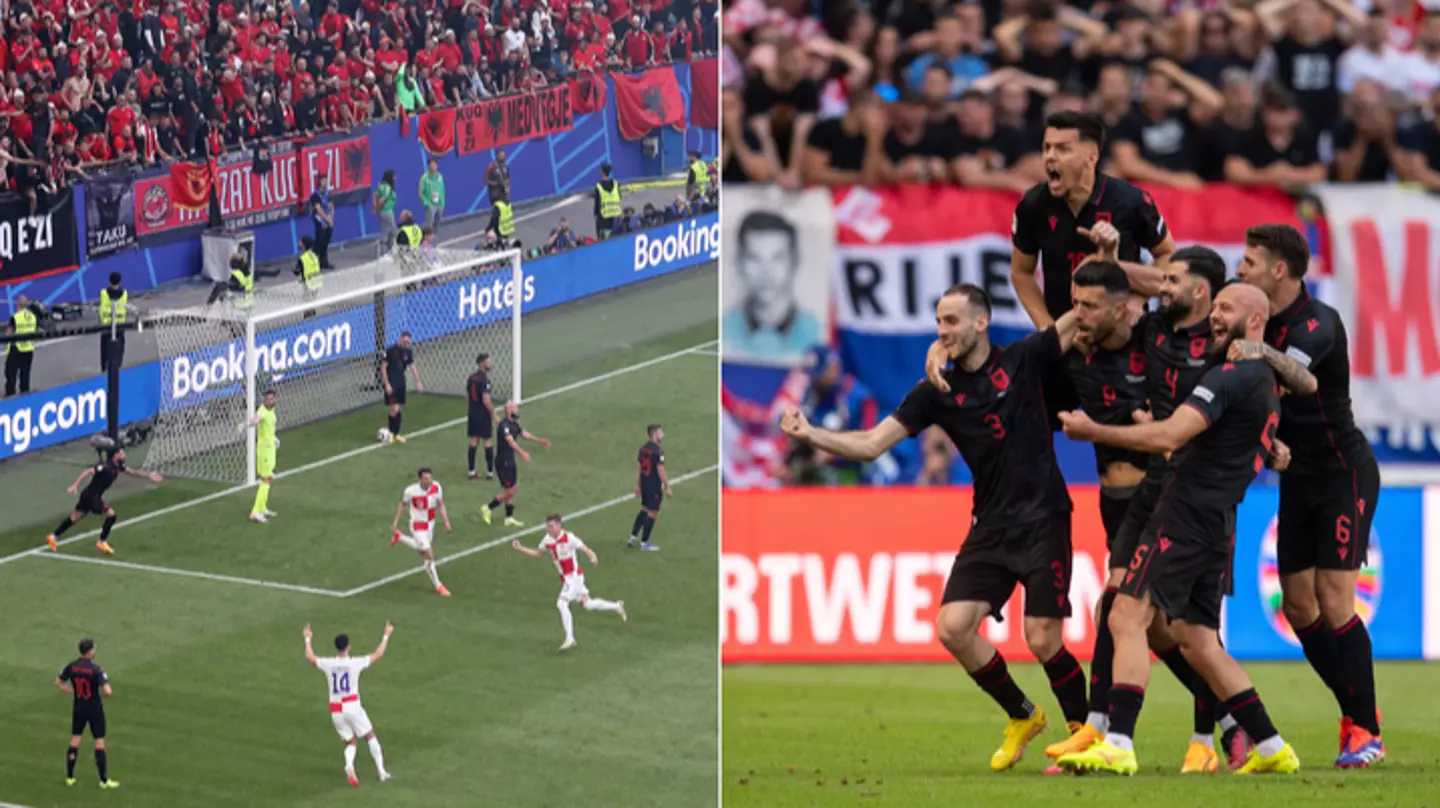The 2-2 thriller between Croatia and Albania resulted in a unique piece of football history never before achieved at a European Championship or World Cup. Albania, having previously won only one Euros match, took an early lead in the first half thanks to Sparta Prague midfielder Qazim Laci.
Croatia equalized in the 66th minute through Andrej Kramaric, and an own goal by Albanian substitute Klaus Gjasula just two minutes later put Croatia ahead 2-1. However, Gjasula’s impact on the game was far from over.

The 34-year-old, who plays club football in Germany for Darmstadt, equalized with a precise left-footed shot into the bottom left corner in the 92nd minute. There was still time for the midfielder to make a defensive impact as he brought down a Croatia attacker in a desperate attempt to prevent one final chance, earning himself a booking.
According to OptaJoe, Gjasula’s trio of contributions set a unique European Championship and World Cup record. He is the first substitute in the history of both competitions to come off the bench and score both a goal and an own goal in the same match. Consequently, he is also the first player to achieve both these feats and receive a yellow card in a single game.

The 2-2 draw leaves both teams with one point each in Group B, following Albania’s 2-1 loss to Italy and Croatia’s 3-0 defeat to Spain on matchday one. Albania is currently third on goal difference and will face Spain in their final group game, aiming to qualify for the knockout stages for the first time in their history. Croatia, on the other hand, hopes to avoid the embarrassment of being eliminated in the group stage after finishing as runners-up at the 2018 World Cup, third in 2022, and runners-up in the 2023 Nations League.
